Just as Americans start to see lower gas prices, big oil wants to sell US crude overseas
The US domestic oil and gas production boom has been fueling oil patch economies, such as North Dakota, for years.
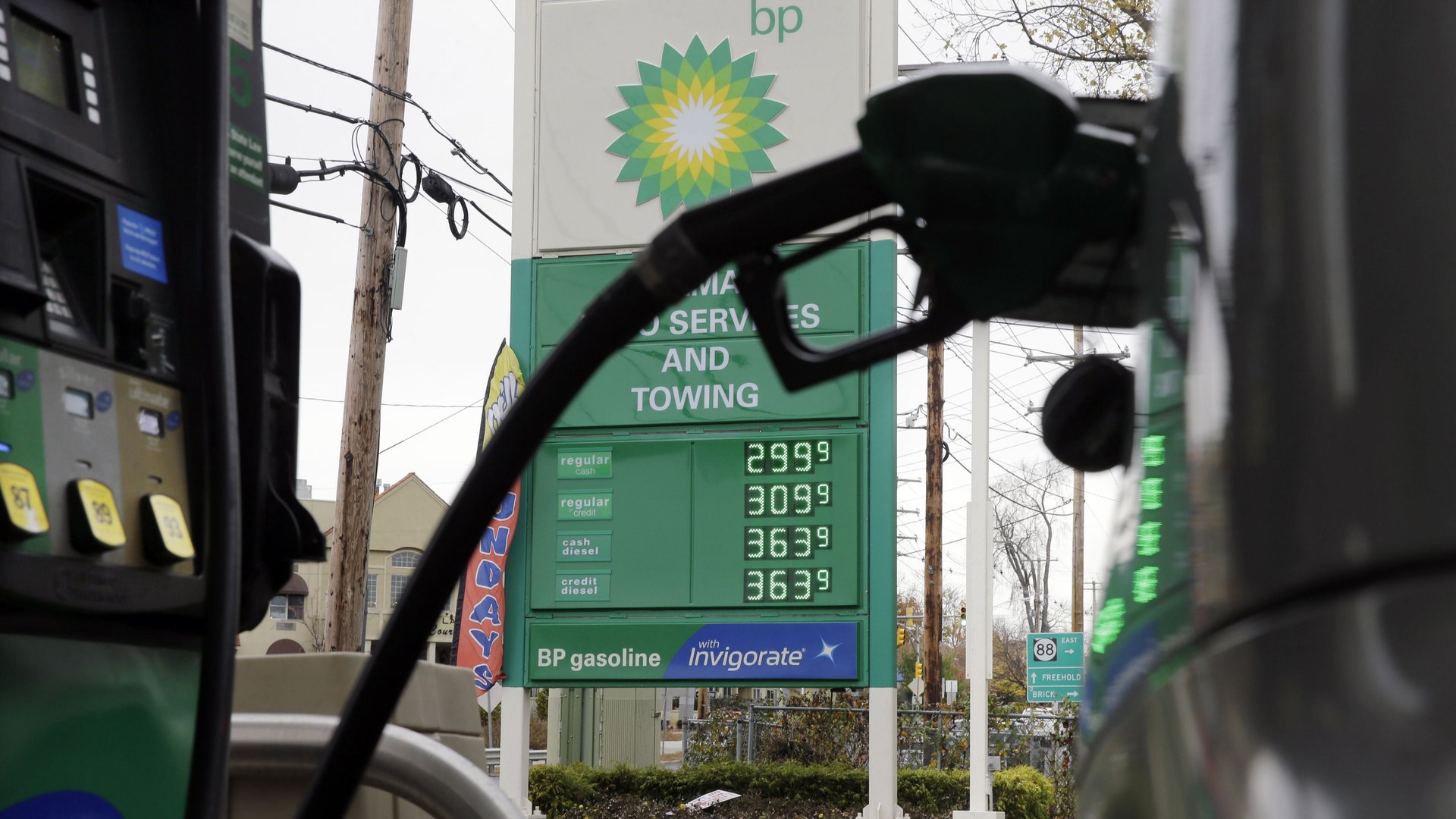

The US domestic oil and gas production boom has been fueling oil patch economies, such as North Dakota, for years.
And now the rest of the country is benefitting too, as retail gasoline prices hit some of their lowest levels in years. In fact, futures prices suggest that prices could continue to fall over the next few weeks. (Although, that’s somewhat typical after the end of the big summer driving season.)
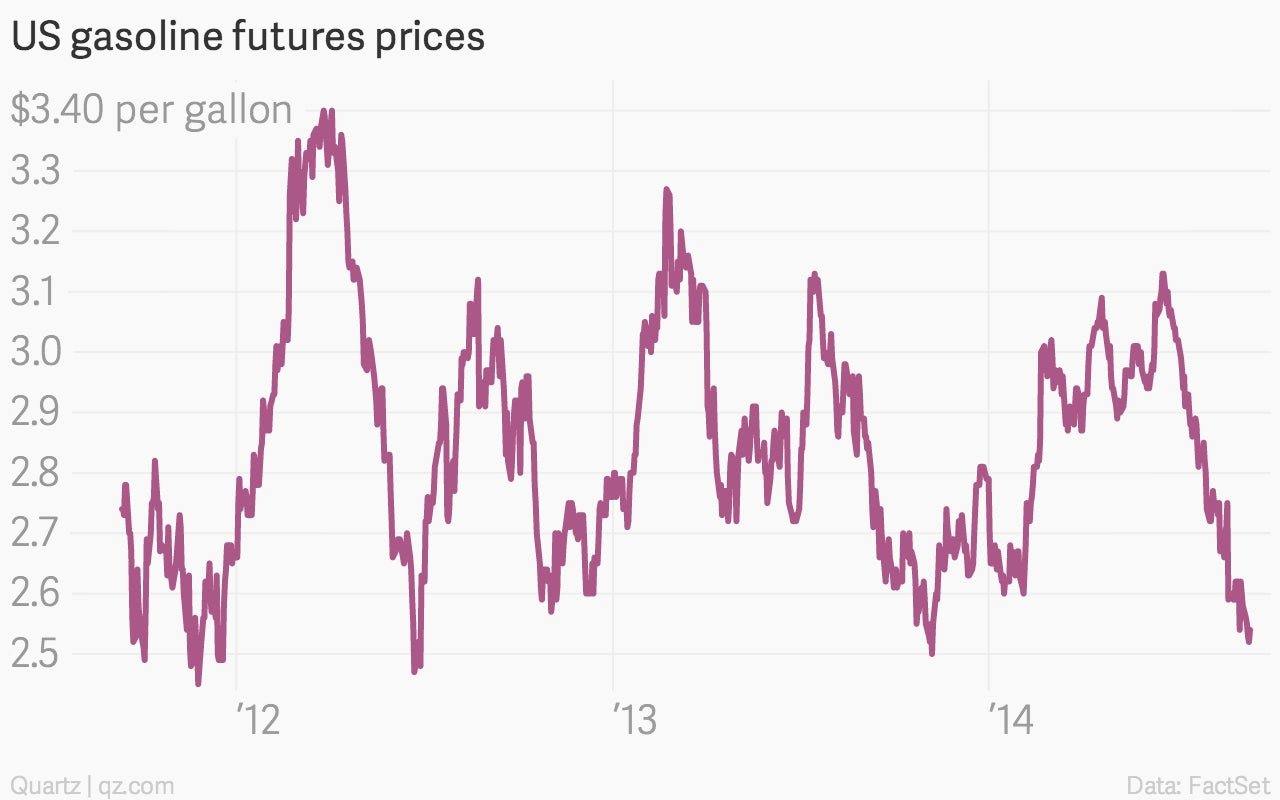
But from a broader perspective, it’s important to note that US oil prices, as measured by the benchmark futures contract for West Texas Intermediate crude oil, have diverged from the European benchmark Brent crude oil contract, essentially since the Arab Spring uprisings gained steam in 2011. (You can see they once traded almost in lockstep.)
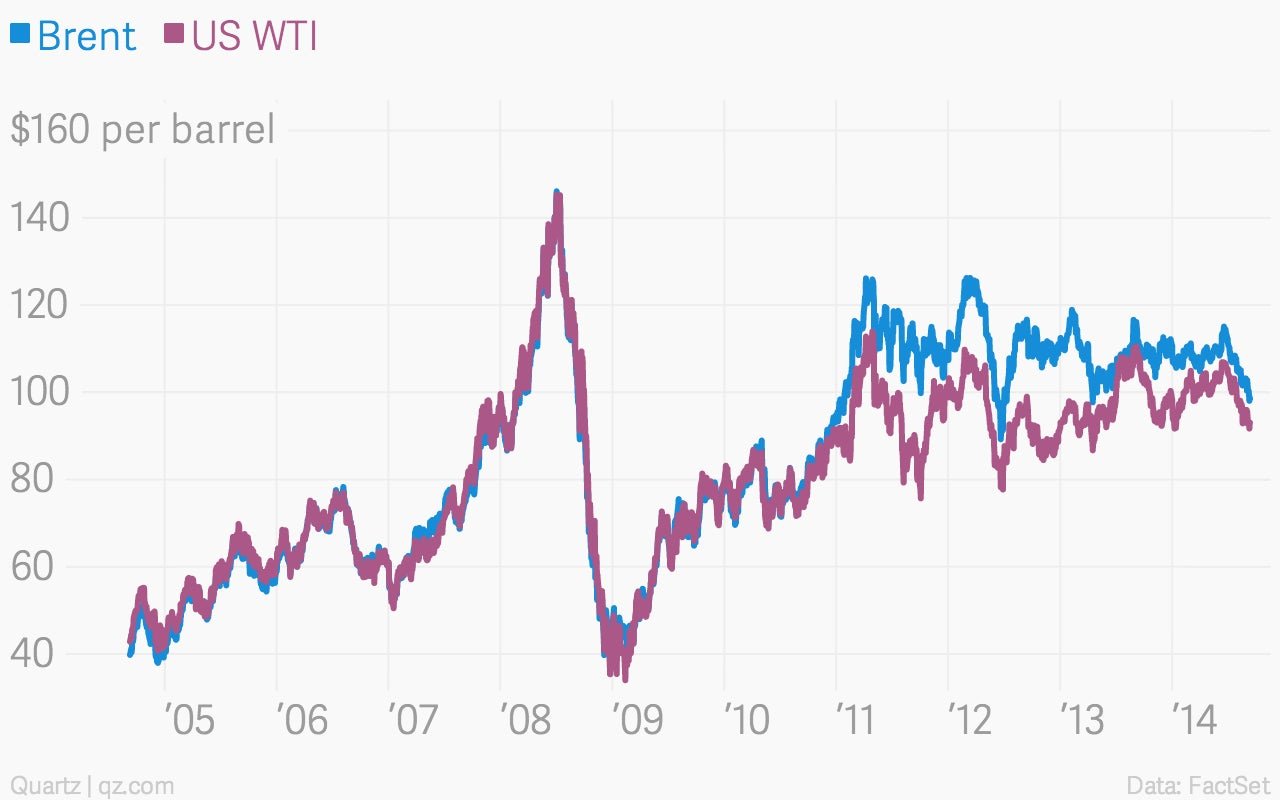
And those lower US crude oil prices, have resulted in something called higher crack spreads—essentially the profit margins that refineries can make. Refineries are rushing to take advantage of those higher profit margins by boosting production.
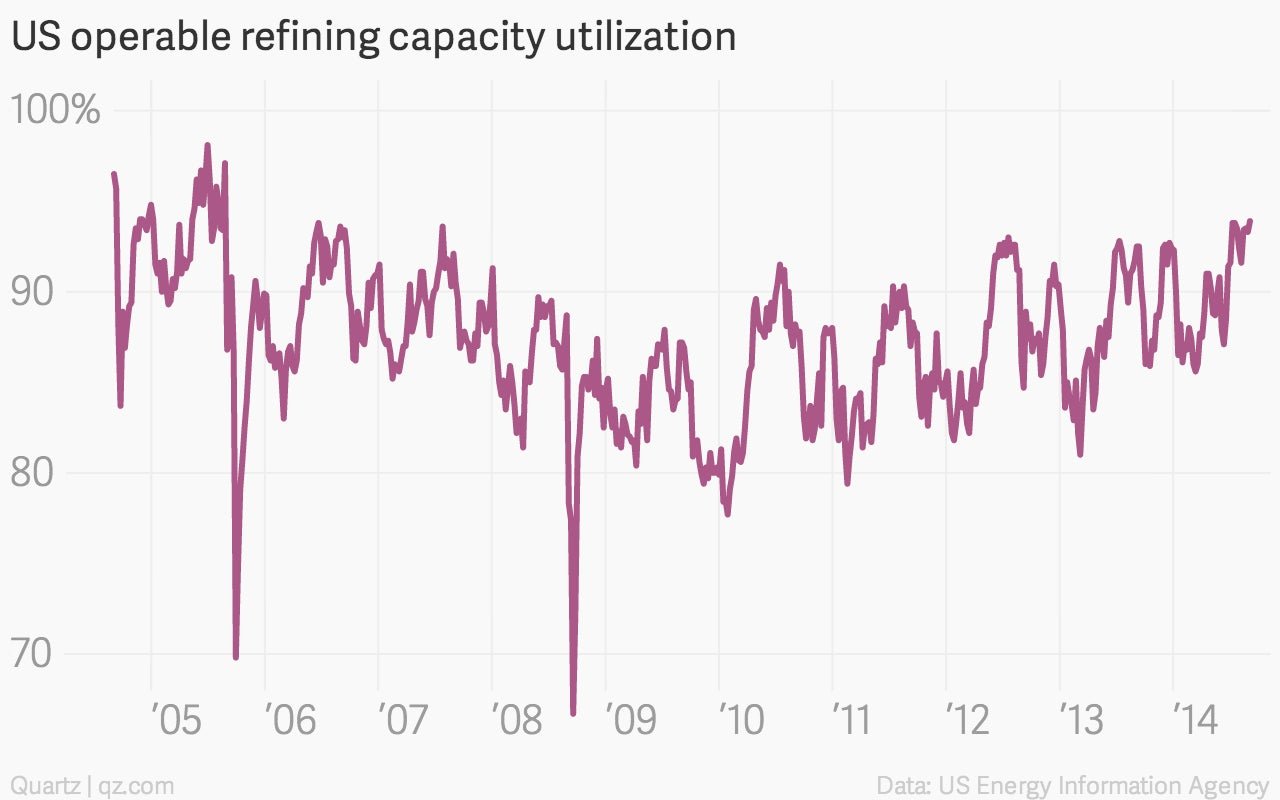
And that has resulted in an ample flow of gasoline, helping to drive down retail prices. We don’t want to get ahead of ourself; it’s not as if gas prices have collapsed. But futures prices suggest they should fall further, which would be a major boon to America’s consumption-led economy.
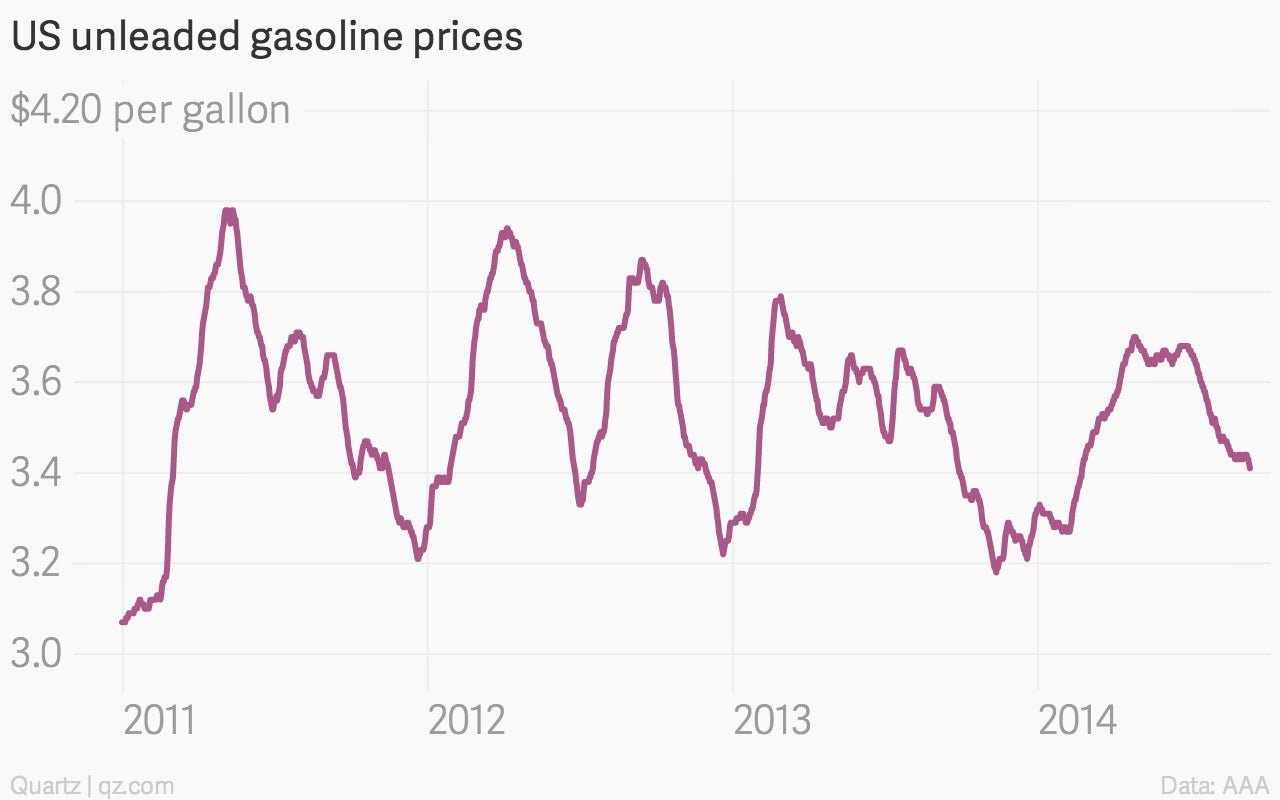
At first glance, this seems like an out-and-out policy success. The point of boosting US oil and gas production, in part, is to help insulate the US from the volatile geopolitics associated with oil production elsewhere. (For example, the Middle East, Russia, and to a lesser extent, Venezuela.)
But just as American consumers seem to be benefiting from this system, interested parties in the oil industry are pushing to allow greater exports of crude from the US. (US crude exports have been banned since the Arab oil embargoes of the 1970s.)
Of course, from their perspective this makes sense. They can get higher prices from the global market, rather than being hemmed in to the US. But to allow more crude exports would essentially undermine the strides America has made in becoming energy independent. That’s why it shouldn’t be allowed.
Still, with the deep-pocketed oil industry greasing wheels in Washington, don’t bet against it happening.